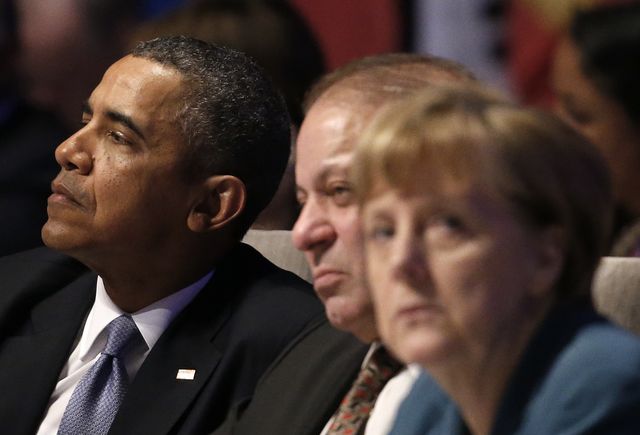by Simon Marks* Europe's scaled-up sanctions against Russia, targeting some of the country's largest state-owned banks, have raised many questions as to the impact they will have on the euro area's fragile economic recovery
Europe's scaled-up sanctions against Russia, targeting some of the country's largest state-owned banks, have raised many questions as to the impact they will have on the euro area's fragile economic recovery.
In devising tougher sanctions, EU officials say they have done everything in their power to ensure that Europe does not suffer any of the negative consequences. One way they have done this is to ensure that Russian banks can continue lending in the European single market.
The sanctions - which come with a total access ban for large state-owned Russian banks to EU capital markets - will also be re-evaluated by the European Commission in three months in order to assess any unintended side effects.
But Commission officials believe the measures will for the most part effect Russia much more than it will Europe.
As part of the new measures, European individuals and companies will no longer be able to buy or sell Russian-issued bonds, equity or similar financial instruments with a maturity exceeding 90 days. The rule applies to bonds issued on any market across the world including inside Russia.
The impact could be significant. Between 2004 and 2012, companies incorporated in Russia raised capital of $48 billion through issuing bonds and equity. Of that amount $16.4 was issued by state-owned financial institutions.
Moreover, nearly half (47%) of bonds issued by Russian public financial institutions in 2013 were issued in European capital markets, EU officials speaking on the condition of anonymity said Wednesday.
Russian banks issued around E15.8 billion inside Russia last year and a further E7.5 billion in European capital markets. Europeans will be banned from purchasing or selling any of such issuances in the future.
"The rationale for that is that we are aware that the Russian banking and financial sector is heavily dependent on the EU and global capital markets for its funding and financing," a senior Commission official said Wednesday speaking on the condition of anonymity.
Not included in the ban are subsidiaries of Russian state-owned banks established inside the EU. But Commission officials believe that such entities have not historically issued bonds and are unlikely to do so in the future. There is also an anti-circumvention clause in the legal text which will prevent subsidiaries from acting as an intermediary for their parent company covered under the sanctions.
"We will have a sort of pit stop to see what is happening after three months," the source said, adding "We clearly thought there is a possibility that these subsidiaries will in theory transfer part of their liquidity or on land capital raised on EU markets outside the EU to their parent companies."
Placing a limitation on the type of bond issuance to 90 days was done to ensure that banks still have access to short term financing.
"It's very important that this measure is not an embargo on dealing with these banks," said another Commission official who requested anonymity. "The intention is not to destroy these banks. Normal operations with these institutions are possible. We do not want to get these institutions into a liquidity crisis. Therefore they have to be able to access short term money markets to fund their liquidity as other financial institutions do."
Indeed, the main consequence of the financial sanctions will be the ability of large state-owned banks to finance the Russian economy in the long term.
Just last week the Bank of Russia decided to raise its key interest rate to 8.0% from 7.5% due to inflation risks stemming from the geopolitical tension and the potential impact on the rouble exchange rate.
GDP growth in Russia is already predicted at just 0.2% in 2014 by the International Monetary Fund and officials at the Fund in Washington have said a further deterioration in the situation could have "a substantial adverse impact on the Russian economy."
There are also views that the sanctions could end up having spill over effects inside the euro area itself.
"In our view, the conflict with Russia will continue to weigh on the Euro-area recovery. The cost could amount to something like 0.3% of annual GDP. If the recovery weakens, inflation may fail to pick up, increasing deflation risk and the risk of more action by the ECB," Nordea Bank said in a paper released on Wednesday.
Given the poor rate of recovery in the euro area, the bank warned that its projection of 1.2% GDP growth for this year may be hard to achieve in the case of a prolonged crisis with Russia.
"The longer the crisis continues, the more longer-lasting the market moves will obviously be. It is already becoming clear that the Euro-area economy will take a hit, meaning expectations for more action from the ECB could easily pick up," the bank said.
*MNI London Bureau



